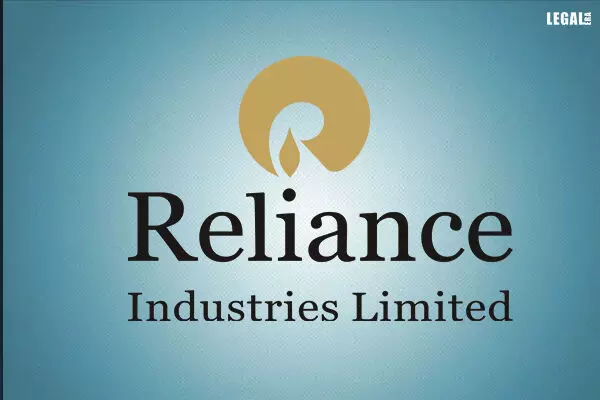- Home
- News
- Articles+
- Aerospace
- AI
- Agriculture
- Alternate Dispute Resolution
- Arbitration & Mediation
- Banking and Finance
- Bankruptcy
- Book Review
- Bribery & Corruption
- Commercial Litigation
- Competition Law
- Conference Reports
- Consumer Products
- Contract
- Corporate Governance
- Corporate Law
- Covid-19
- Cryptocurrency
- Cybersecurity
- Data Protection
- Defence
- Digital Economy
- E-commerce
- Employment Law
- Energy and Natural Resources
- Entertainment and Sports Law
- Environmental Law
- ESG
- FDI
- Food and Beverage
- Gaming
- Health Care
- IBC Diaries
- In Focus
- Inclusion & Diversity
- Insurance Law
- Intellectual Property
- International Law
- IP & Tech Era
- Know the Law
- Labour Laws
- Law & Policy and Regulation
- Litigation
- Litigation Funding
- Manufacturing
- Mergers & Acquisitions
- NFTs
- Privacy
- Private Equity
- Project Finance
- Real Estate
- Risk and Compliance
- Student Corner
- Take On Board
- Tax
- Technology Media and Telecom
- Tributes
- Viewpoint
- Zoom In
- Law Firms
- In-House
- Rankings
- E-Magazine
- Legal Era TV
- Events
- News
- Articles
- Aerospace
- AI
- Agriculture
- Alternate Dispute Resolution
- Arbitration & Mediation
- Banking and Finance
- Bankruptcy
- Book Review
- Bribery & Corruption
- Commercial Litigation
- Competition Law
- Conference Reports
- Consumer Products
- Contract
- Corporate Governance
- Corporate Law
- Covid-19
- Cryptocurrency
- Cybersecurity
- Data Protection
- Defence
- Digital Economy
- E-commerce
- Employment Law
- Energy and Natural Resources
- Entertainment and Sports Law
- Environmental Law
- ESG
- FDI
- Food and Beverage
- Gaming
- Health Care
- IBC Diaries
- In Focus
- Inclusion & Diversity
- Insurance Law
- Intellectual Property
- International Law
- IP & Tech Era
- Know the Law
- Labour Laws
- Law & Policy and Regulation
- Litigation
- Litigation Funding
- Manufacturing
- Mergers & Acquisitions
- NFTs
- Privacy
- Private Equity
- Project Finance
- Real Estate
- Risk and Compliance
- Student Corner
- Take On Board
- Tax
- Technology Media and Telecom
- Tributes
- Viewpoint
- Zoom In
- Law Firms
- In-House
- Rankings
- E-Magazine
- Legal Era TV
- Events
CESTAT provides relief to Reliance on 4G mobile towers

CESTAT provides relief to Reliance on 4G mobile towers
The bench relied on a Bombay High Court order in an earlier case
The Mumbai bench of the Customs, Excise & Service Tax Appellate Tribunal (CESTAT) has held that the 4G mobile towers are movable in nature and eligible for Central Value Added Tax (CENVAT) credit.
The appellant, Reliance Jio Infocomm Limited, is a telecom operator that offers Long Term Evolution-Fourth Generation wireless telecommunications.
To render such services, it has installed monopoles, masts, poles and telecom towers, which house the radio transmission and reception equipment. Installed across the country, the paraphernalia includes antennas, routers, switches and electrical utility items like SMPs and batteries.
The revenue department objected to the Company availing CENVAT credit. It alleged that the appellant did not qualify as 'capital goods' or 'inputs' under the CENVAT Credit Rules, 2004.
Thereafter, the appellant reversed the CENVAT credit amounting to 'under protest'. When advised that in the absence of any show-cause notice or determination of liability such a reversal of credit was not warranted, the appellant filed a claim for refund.
The revenue department submitted that since the goods were immovable structures, the credit was not admissible. The Assistant Commissioner, thus, rejected the application for a refund.
Aggrieved, the appellant approached the Commissioner (Appeals), which did not accept the contention and upheld the order passed by the Assistant Commissioner.
The appellant then approached CESTAT. It submitted that the towers did not qualify the stipulations laid down by the Supreme Court being regarded as immovable property.
It contended that the towers were neither land nor benefits arising out of the land. It was neither attached to the earth nor permanently fastened to anything attached to the earth. These were fixed above the ground to a foundation using nuts and bolts. Since the fastening was not permanent, it could be dismantled easily and moved from one location to the other without any damage.
The Coram of Justice Dilip Gupta, President and CJ Mathew, Member (Technical), relied on the judgment of the Bombay High Court in the Bharti Airtel and Vodafone India case wherein it was ruled that an authority could not deny CENVAT credit for a telecom tower. It held that the appellant was entitled to a refund of the CENVAT credit.


